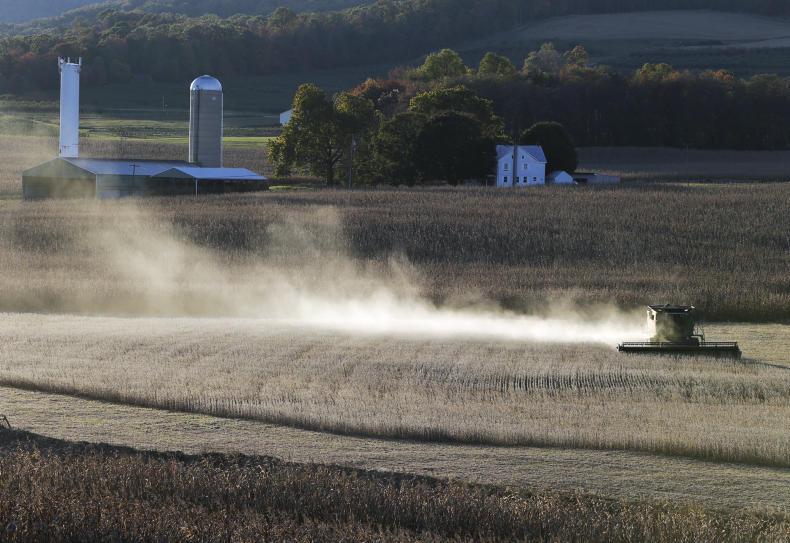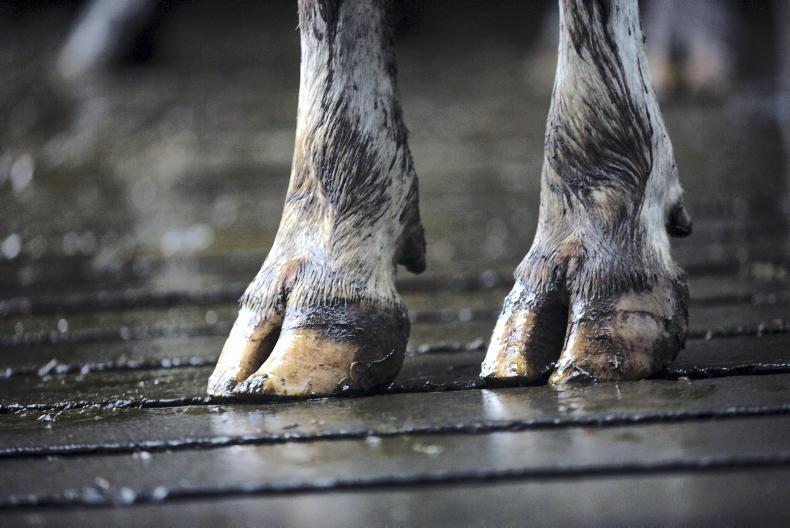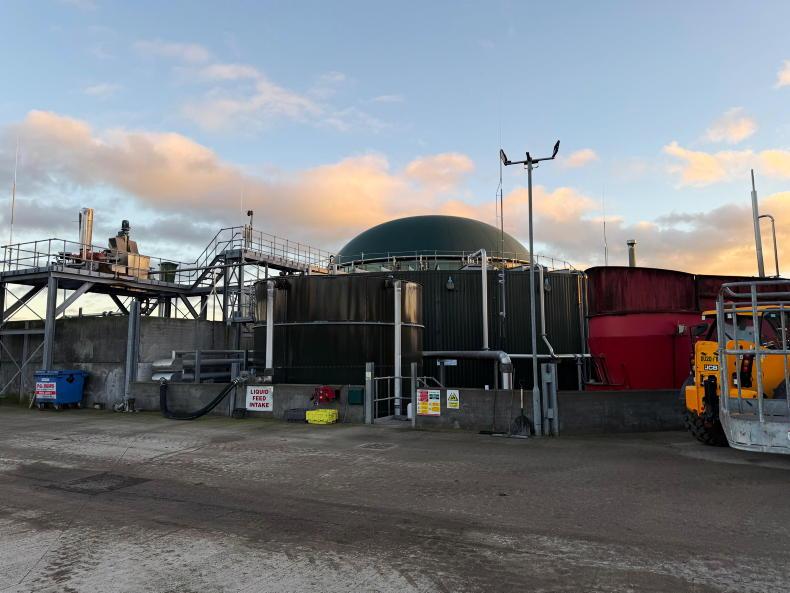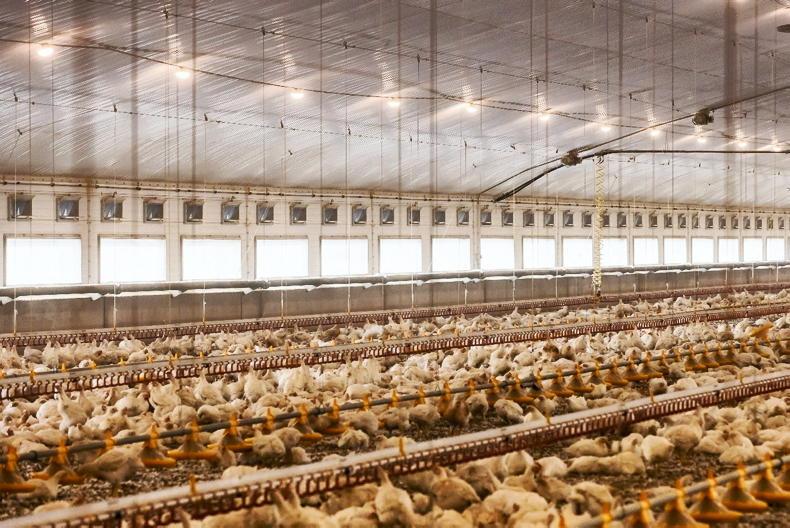There are some opportunities to develop new export business for UK food companies in the US, but these are far outweighed by the risks posed by product coming in the other direction, agri-food experts told a House of Lords committee last week.
Presenting their views as part of an inquiry which is looking at UK/US trade negotiations, NFU director Nick von Westenholz and Michael Haverty, a partner at the Andersons Centre, both emphasised the importance of a trade deal with the EU, over one with the US.
At present, the EU takes about 75% of UK food exports, and securing this trade, as well as protecting the home market from being devalued by cheap food imports, should be the priority.
“We have a huge domestic market, and the EU is hugely important as well. After that, we should be looking at opportunities, but they are secondary to those important priorities,” von Westenholz told committee members.
He pointed out that the UK government has decided to prioritise trade deals with three of the largest agricultural exporters on the planet (Australia, New Zealand and the USA), rather than deals that might have delivered real gains for UK farmers, such as Japan.
“It would be wilfully blind to say that does not pose a risk to domestic producers in the UK,” he said.
In terms of a specific trade deal with the US, both he and Haverty warned that significantly lower costs of production in the US potentially make meat imports into the UK very competitive.
In pigs and poultry, Haverty estimates that production costs could be 20% to 50% lower in the US, mainly due to the use of feed additives and production processes that are currently illegal in the UK and EU.
Banned
At present, the likes of hormone-treated beef, chlorine-washed chicken and ractopamine-fed pork are all banned in the EU on food safety grounds. Linked to that are issues around animal welfare standards in US production and processing.
One potential solution is that the UK sets dual tariffs, with high tariffs on US goods that don’t meet UK animal welfare standards. But where US producers can prove they meet UK standards, tariffs would be either low or zero.
However, von Westenholz believes it is “highly unlikely” that the US will accept that approach, and fears that the UK government will eventually cave in on a lot of these issues.
But ultimately, will UK consumers actually buy US goods? Already Waitrose and Aldi have said that they will never stock chlorine-washed chicken or hormone-treated beef. However, the target for US produce is likely to be the food service sector where labelling requirements are lax, margins are slim, and consumers are much less likely to check or ask where the food comes from.
As a result, von Westenholz believes a UK/US trade deal could create a mass market opportunity for US farmers accessing the UK food service sector, but in the other direction, the trade is much more limited, and in niche sectors such as speciality cheese.
More honest
While UK trade secretary Liz Truss recently described a US trade deal as a “huge opportunity” for UK farmers, von Westenholz doesn’t see it that way, suggesting that politicians “need to be more honest” with farmers.
One of the sectors held up as a potentially benefiting from a deal is lamb, with US domestic production falling, and imports at record levels. However, von Westenholz points out that US imports are dominated by Australia and New Zealand, so it will be challenging to break into the market. In addition, UK lamb remains banned from the US since the days of BSE.
In 2016, UK Farm Minister George Eustice estimated that lifting the ban could be worth £35m a year to the UK sheep industry, and more recent estimates suggest that a deal with the US could create a market opportunity for lamb worth £80m per year.
But at present the UK sells £350m of lamb every year to the EU, dwarfing even the best estimate for trade with the US.
Read more
UK trade policy will squeeze farmers
Differing UK views on trade
There are some opportunities to develop new export business for UK food companies in the US, but these are far outweighed by the risks posed by product coming in the other direction, agri-food experts told a House of Lords committee last week.
Presenting their views as part of an inquiry which is looking at UK/US trade negotiations, NFU director Nick von Westenholz and Michael Haverty, a partner at the Andersons Centre, both emphasised the importance of a trade deal with the EU, over one with the US.
At present, the EU takes about 75% of UK food exports, and securing this trade, as well as protecting the home market from being devalued by cheap food imports, should be the priority.
“We have a huge domestic market, and the EU is hugely important as well. After that, we should be looking at opportunities, but they are secondary to those important priorities,” von Westenholz told committee members.
He pointed out that the UK government has decided to prioritise trade deals with three of the largest agricultural exporters on the planet (Australia, New Zealand and the USA), rather than deals that might have delivered real gains for UK farmers, such as Japan.
“It would be wilfully blind to say that does not pose a risk to domestic producers in the UK,” he said.
In terms of a specific trade deal with the US, both he and Haverty warned that significantly lower costs of production in the US potentially make meat imports into the UK very competitive.
In pigs and poultry, Haverty estimates that production costs could be 20% to 50% lower in the US, mainly due to the use of feed additives and production processes that are currently illegal in the UK and EU.
Banned
At present, the likes of hormone-treated beef, chlorine-washed chicken and ractopamine-fed pork are all banned in the EU on food safety grounds. Linked to that are issues around animal welfare standards in US production and processing.
One potential solution is that the UK sets dual tariffs, with high tariffs on US goods that don’t meet UK animal welfare standards. But where US producers can prove they meet UK standards, tariffs would be either low or zero.
However, von Westenholz believes it is “highly unlikely” that the US will accept that approach, and fears that the UK government will eventually cave in on a lot of these issues.
But ultimately, will UK consumers actually buy US goods? Already Waitrose and Aldi have said that they will never stock chlorine-washed chicken or hormone-treated beef. However, the target for US produce is likely to be the food service sector where labelling requirements are lax, margins are slim, and consumers are much less likely to check or ask where the food comes from.
As a result, von Westenholz believes a UK/US trade deal could create a mass market opportunity for US farmers accessing the UK food service sector, but in the other direction, the trade is much more limited, and in niche sectors such as speciality cheese.
More honest
While UK trade secretary Liz Truss recently described a US trade deal as a “huge opportunity” for UK farmers, von Westenholz doesn’t see it that way, suggesting that politicians “need to be more honest” with farmers.
One of the sectors held up as a potentially benefiting from a deal is lamb, with US domestic production falling, and imports at record levels. However, von Westenholz points out that US imports are dominated by Australia and New Zealand, so it will be challenging to break into the market. In addition, UK lamb remains banned from the US since the days of BSE.
In 2016, UK Farm Minister George Eustice estimated that lifting the ban could be worth £35m a year to the UK sheep industry, and more recent estimates suggest that a deal with the US could create a market opportunity for lamb worth £80m per year.
But at present the UK sells £350m of lamb every year to the EU, dwarfing even the best estimate for trade with the US.
Read more
UK trade policy will squeeze farmers
Differing UK views on trade










SHARING OPTIONS